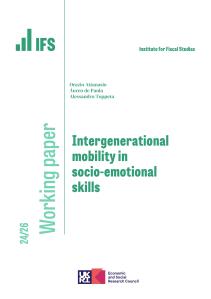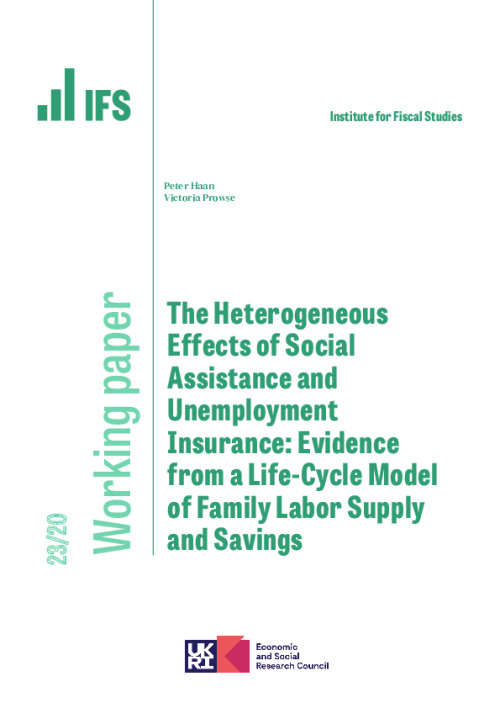Downloads
We empirically analyze the heterogeneous welfare effects of unemployment insurance
and social assistance. We estimate a structural life-cycle model of singles' and married
couples' labor supply and savings decisions. The model includes heterogeneity by age,
education, wealth, sex and household composition. In aggregate, social assistance dominates
unemployment insurance; however, the opposite holds true for married men, whose
leisure time declines more than that of their spouses when unemployment insurance is
reduced. A revenue-neutral rebalancing of social support away from unemployment insurance
and toward social assistance increases aggregate welfare. Income pooling in married
households decreases the welfare value of social assistance.
Authors

Research Fellow DIW Berlin
Head of department of Public Economics at DIW Berlin and Professor of Public Economics at Freie Universität Berlin.
Professor of Economics Purdue University
Working Paper details
- DOI
- 10.1920/wp.ifs.2023.2023
- Publisher
- Institute for Fiscal Studies
Suggested citation
Haan, P and Prowse, V. (2023). The heterogeneous effects of social assistance and unemployment insurance: evidence from a life-cycle model of family labor supply and savings. 23/20. London: Institute for Fiscal Studies. Available at: https://ifs.org.uk/publications/heterogeneous-effects-social-assistance-and-unemployment-insurance-evidence-life-cycle (accessed: 30 June 2024).
More from IFS
Understand this issue

Why inheritance tax should be reformed
18 January 2024

The future of the state pension
21 December 2023

How important is the Bank of Mum and Dad?
15 December 2023
Policy analysis

Homeownership for young adults has recovered to its 2010 level
29 May 2024

Pensions: five key decisions for the next government
7 June 2024

Key decisions await the pensions minister after the election
7 June 2024
Academic research

The intergenerational elasticity of earnings: Exploring the mechanisms
3 June 2024

Intergenerational mobility in socio-emotional skills
5 June 2024

Police infrastructure, police performance, and crime: Evidence from austerity cuts
24 April 2024
